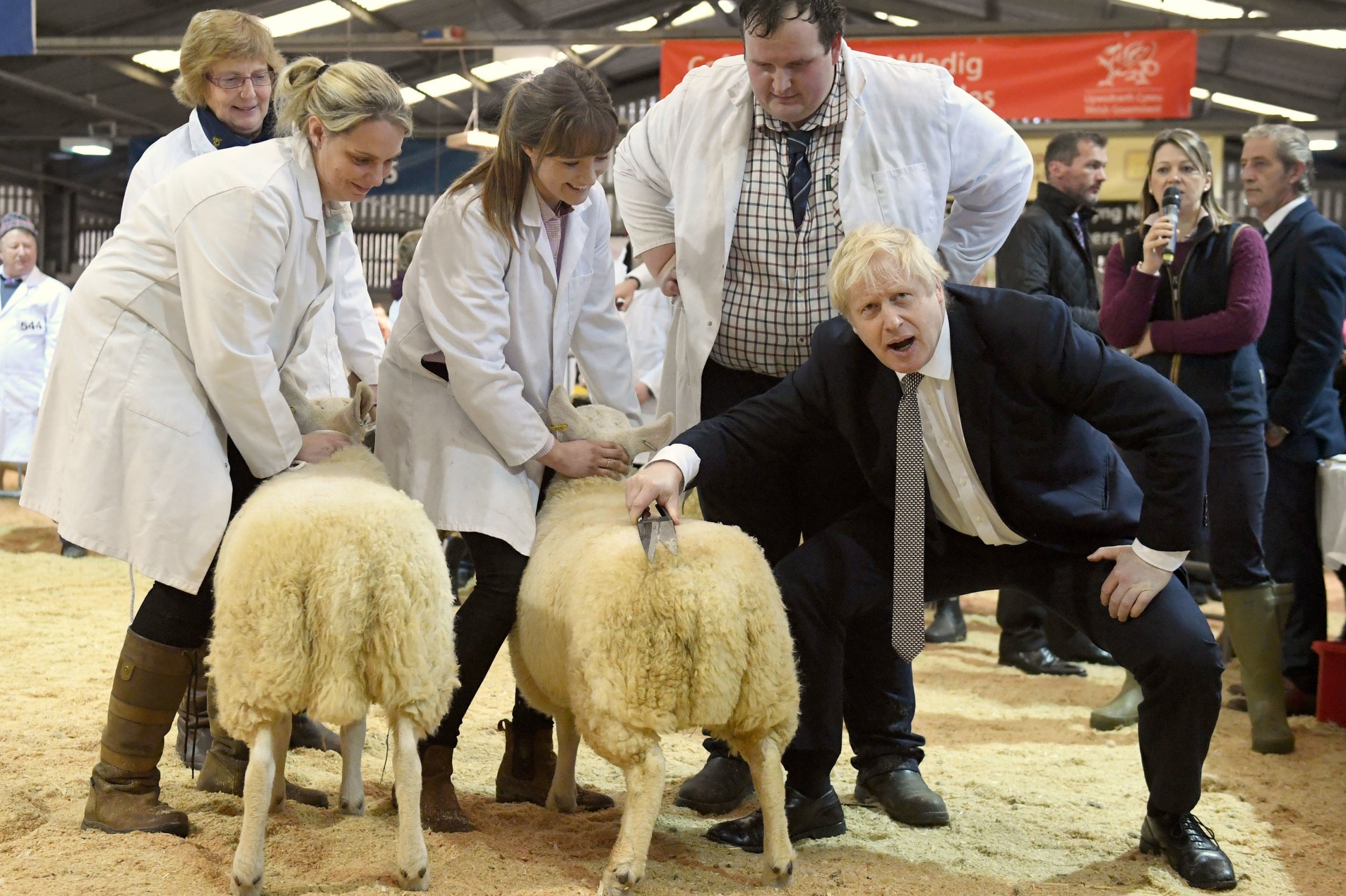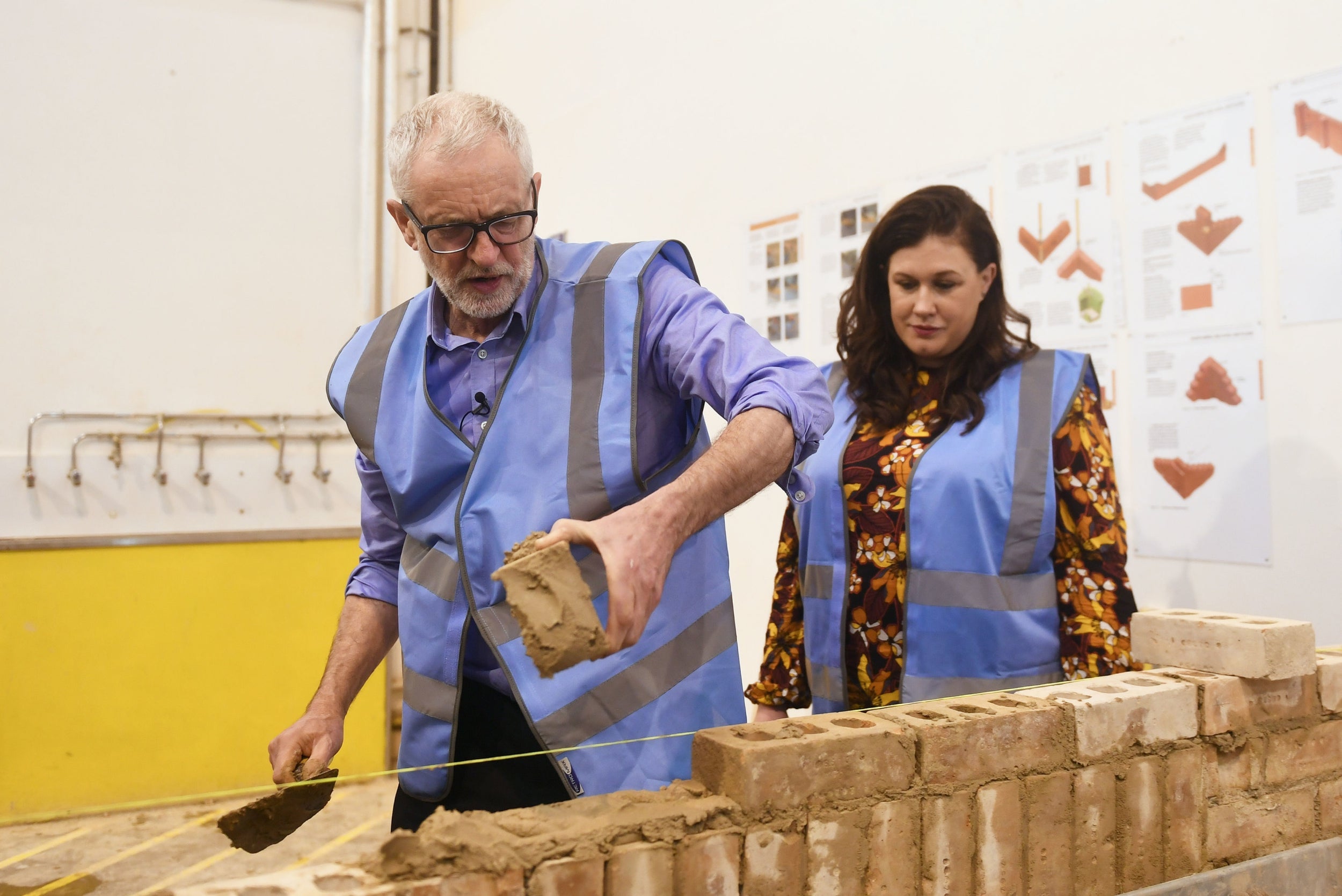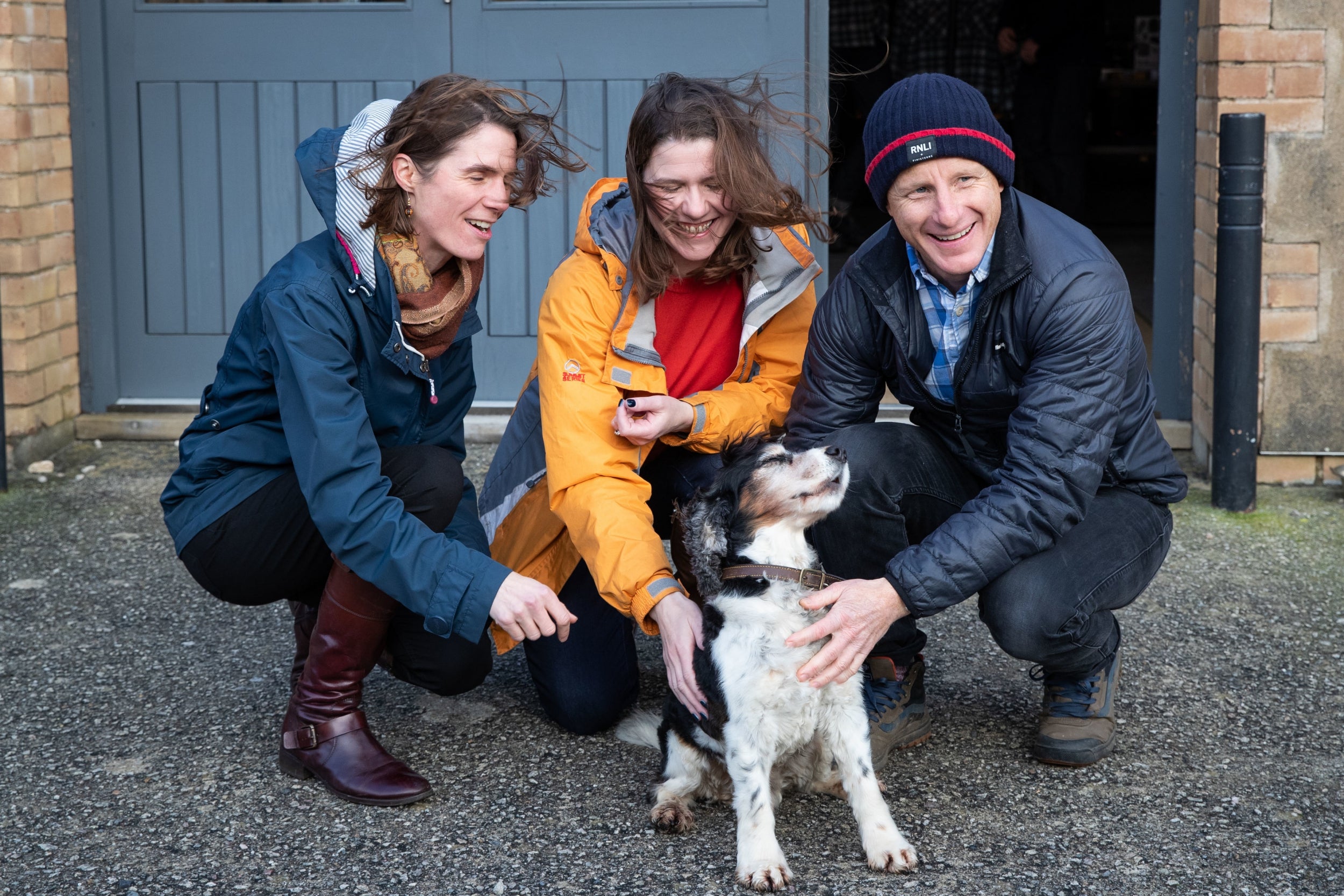Who should I vote for in the general election? A guide to all party manifestos in the UK
Where the political parties stand on the NHS, Brexit and other key issues
Your support helps us to tell the story
From reproductive rights to climate change to Big Tech, The Independent is on the ground when the story is developing. Whether it's investigating the financials of Elon Musk's pro-Trump PAC or producing our latest documentary, 'The A Word', which shines a light on the American women fighting for reproductive rights, we know how important it is to parse out the facts from the messaging.
At such a critical moment in US history, we need reporters on the ground. Your donation allows us to keep sending journalists to speak to both sides of the story.
The Independent is trusted by Americans across the entire political spectrum. And unlike many other quality news outlets, we choose not to lock Americans out of our reporting and analysis with paywalls. We believe quality journalism should be available to everyone, paid for by those who can afford it.
Your support makes all the difference.The main political parties have laid out their blueprints for government ahead of what is likely to be one of the most decisive and 'truly historic' general elections in recent years.
But voters face a confusing picture, as Brexit has blurred traditional party lines.
Here The Independent takes a look at where the main parties stand on key issues.
Brexit
Tories - To “get Brexit Done”. A Tory government will put Boris Johnson's Brexit deal to parliament before Christmas and promises to leave the EU by 31 January.
Labour - To secure a “sensible” Brexit deal within three months and hold a Final Say referendum on the deal by the summer. Jeremy Corbyn would remain neutral during the campaign.
Lib Dems - The party would revoke Article 50. If it fails to win power, the party would push for another referendum, in which it would campaign for Remain.
Greens - The party backs a second referendum and has vowed to campaign for Remain.
Brexit Party - A “clean break” Brexit, which appears to mean the PM’s deal with no extension of the transition period beyond December 2020.
SNP - Support a second referendum with Remain on the ballot paper. If there was a choice between revoking article 50 and a no-deal Brexit, the SNP would back revocation.
Health
Tories - A cash boost of £34bn per year by the end of the next parliament. An extra 50,000 NHS nurses (although this contains 18,500 existing nurses) and a return of the nursing bursary. Free hospital parking for some patients and staff. £1bn a year for social care and a promise to find "cross-party consensus" on a long-term plan.

Labour - A 4.3 per cent increase in NHS expenditure every year, with privatisation reversed. Labour would also reintroduce free dental care check-ups, mental health services would receive £1.6bn extra a year, and free personal care for elderly people.
Lib Dems - A penny income tax rise for spending on NHS and social care would raise £7bn a year. Focus on mental health with more waiting times targets and a reduction in out of area placements. Minimum unit pricing for alcohol would also be introduced - like in Scotland.
Greens - Invest £6bn in the NHS per year from tax rises. Roll back privatisation and create more community healthcare. Guarantee mental health treatment within 28 days, with tailored provision for LGBTQ+ patients.
Brexit Party - Invest in the NHS, scrap failed privatisation and ensure GP surgeries are open 24 hours a day. Abolish “politically imposed” waiting times targets.
SNP - New legislation to protect the NHS from being part of future trade deals. Support end to privatisation in NHS in England and Wales (as healthcare is devolved to Holyrood). Call on UK government to boost per capita spending on the NHS to Scottish levels - thus boosting Scotland's block grant.
Economy and taxes
Tories - A "triple lock" on taxes, with no increases in income tax, national insurance and VAT for five years. Public sector investment boosted to up to 3 per cent of GDP but party will rethink if debt interest rises to 6 per cent of revenue.
Labour - An £83bn public spending boost, funded by hikes in corporation tax, capital gains tax and income tax for the highest earners. It also includes a windfall tax for oil companies. Nationalisation of rail, mail, water and the big six energy firms, as well as the broadband arm of BT.
Lib Dems - Tax on frequent flyers, legalise and tax cannabis use, and a “mechanism to allow the public to share in the profits made by tech companies”. Corporation tax would be restored to 20 per cent. Scrap the Marriage Tax Allowance, which gives married couples a tax break of up to £250 a year.
Greens - Simplify various taxes to a single income tax, bringing in £20bn. Replace income tax threshold with universal basic income. A carbon tax on oil and gas extraction, and use of petrol, diesel and aviation fuels.
Brexit Party - Abolish inheritance tax, reform corporation tax and scrap business rates. Scrap interest on student loans and cut VAT on domestic fuel.
SNP - Call for an end to austerity and ask for tax powers to be devolved to Scotland. The party cannot form a majority government - as it can only win Scottish seats - so it is not putting forward a budget.
Welfare

Tories - Continue with universal credit but vow to ensure it "works for the most vulnerable". End the benefit freeze and bring in tough punishments for those who cheat the system. £1bn would be spent on extra childcare places for before and after school, and during the holidays.
Labour - Scrap universal credit and replace the Department for Work and Pensions (DWP) with a Department for Social Security. Benefit cap and the two-child policy will be axed. Pilot universal basic income in certain areas. £58bn for those affected by state pension age changes, known as Waspi women,
Lib Dems - Reform universal credit, reducing the wait for first payments from five weeks to five days. A legal right to food would be introduced. Lib Dems would keep the triple lock on the basic state pension and Waspi women would also be “properly compensated”.
Greens - Phase in universal basic income at £89 per week, replacing most income-related benefits. This will be funded by the party's carbon tax.
Brexit Party - Reform universal credit within two years, after 12-month review of the system. Review position of Waspi women.
SNP - New 12-week parental leave for fathers, on a use-it-or-lose-it basis. Most welfare powers are reserved to Westminster but the SNP support abolishing the benefits freeze, universal credit, the bedroom tax and the punitive benefits sanctions regime.
Climate and the environment
Tories - Pledge to cut greenhouse gas emissions by 2050. Tories will spend £9.2 billion to improve the energy efficiency of homes, schools and hospitals - and £6.3 billion to install energy saving measures to cut bills in 2.2 million homes. No changes to Hunting Act.
Labour - Stops short of party conference motion to establish a net-zero carbon economy by 2030. Labour government would “aim to achieve the substantial majority of our emissions reductions” by that target date.
Lib Dems - Brings forward net-zero target to 2045. Lib Dems will insulate all of the UK’s homes by 2030, ensure 80 per cent of electricity comes from renewable sources by 2030 and plant 60 million trees a year. Ban fracking and non-recyclable single-use plastics, and ensure all cars are electric by 2030.
Greens - Spend £100bn a year to cut carbon emissions by 2030. Frequent flyer levy, tax on oil and gas extraction, and targets to scrap petrol and diesel cars within the decade. Ban single use plastic.
Brexit Party - "Invest" in the environment, plant more trees and create initiative at the UN. Make it illegal for recycled waste to be burnt, buried or dumped at sea.
SNP - Demand a 75% reduction in carbon emissions by 2035, or net-zero carbon emissions by 2040. Push for UK to match Scotland's target to move to electric cars by 2032.

Education
Tories - £14 bn for schools, as announced by the prime minister in his first months in office. Programmes to deal with bullying and disruption.
Labour - Private schools will not be abolished despite calls by activists. Charitable status will be removed from independent schools. 30 hours of free childcare for pre-school children and a Sure Start centre in every community. Scrap university tuition fees and maintenance grants would be returned.
Lib Dems - £13.9bn a year on early years, including boosts for children's centres and the free childcare for 2-4-year-olds and children from nine months whose parents work full time. £10.6bn a year extra on schools, including 20,000 more teachers. £10,000 skills wallet for adults to invest in training.
Greens - Scrap tuition fees and write-off student debt. Remove charitable status from private schools and charge VAT on fees.
Brexit Party - Improve academies and free schools. Abolish student loan interest and scrap targets to push young people into higher education.
SNP - Devolved to Holyrood so the party will lay out full plans ahead of the 2021 Scottish Parliament elections.
Housing
Tories - New social housing white paper and a pledge to renew the affordable homes programme.
Labour - Pledge to build 100,000 homes for social rent each year. Some 8,000 homes available for people with a history of homelessness, and £1bn a year for councils’ homelessness services.
Lib Dems - Build 300,000 homes a year, including 100,000 for social rent. Government-backed tenancy deposits for private renters under 30-years-old. Council tax hikes on properties left empty for more than six months.
Greens - Pledge for 100,000 new carbon-zero council houses each year. Energy efficiency upgrades for more than 1 million homes.
Brexit Party - Simplify planning consent for brownfield sites. Allow more flexibility on affordable housing targets. No overall targets but an intention to "accelerate" the pace of development.
SNP - Devolved to Holyrood so the party will lay out full plans ahead of the 2021 Scottish Parliament elections.

Immigration
Tories - An Australian-style points-based immigration system would be introduced, with an NHS Visa for qualified doctors and nurses. Freedom of movement will end.
Labour - Numerical targets will be scrapped along with the 2014 Immigration Act. Pledge to dismantle the “hostile environment” that led to the Windrush scandal. Free movement will be subject to Brexit negotiations.
Lib Dems - Stop Brexit and retain freedom of movement. End "hostile environment. Resettle 10,000 refugees a year, and a further 10,000 refugee children over the next decade.
Greens - New "humane" system, with no minimum income rules for visas. Right to work for migrants and asylum seekers. Scrap "hostile environment".
Brexit Party - Crack down on illegal immigration. Bring in a points system that is "blind to ethnic origin", to reduce annual immigration numbers.
SNP - Immigration policy is reserved to Westminster. but SNP wants powers to create a tailor-made system for Scotland. Party would oppose hostile environment policies.

Crime and justice
Tories - Recruit 20,000 police officers over the next three years to replace those lost due to budget cuts since 2010. Consult on toughening laws for attacks on emergency service workers and boost the number of tasers and body cameras available for police.
Labour - Re-establish neighbourhood policing and recruit 2,000 more frontline officers than the Conservatives. Establish a Royal Commission to develop a public health approach to drugs. Review the Prevent programme. Eliminate institutional bias against black and ethnic minority groups.
Lib Dems - Invest £1bn in community policing and take a public health approach on violence. An extra 2,000 prison officers to help make prisons “places of rehabilitation”. Pledge for an immediate 2 per cent pay rise for police officers.
Greens - Reduce use of short prison sentences and enhance rehabilitation to long-term prisoners. Treat drug addiction as a health problem, not a crime, by repealing drug legislation and create an "evidence-based, legalised, regulated system of drug control".
Brexit Party - Increase police numbers (but no detail on numbers). Target county lines drug gangs. Introduce sentence ranges for young offenders.
SNP - Demand £175m refund in VAT from UK government for Scotland's emergency services. Tackle Scotland's drugs crisis through a public health approach - however drugs policy and criminal justice are reserved to Westminster.

Join our commenting forum
Join thought-provoking conversations, follow other Independent readers and see their replies
Comments